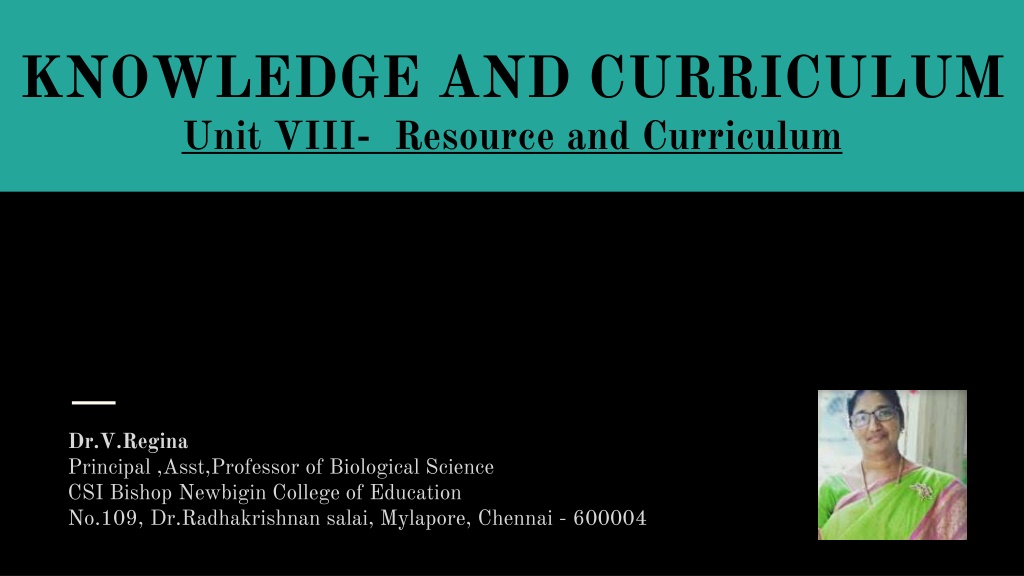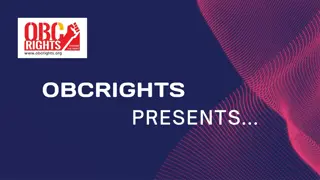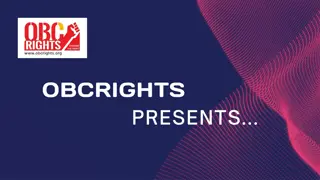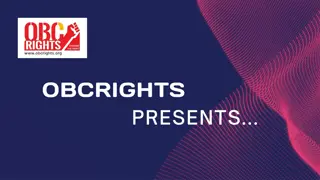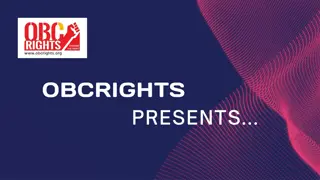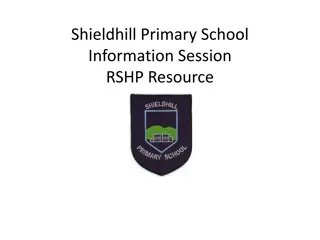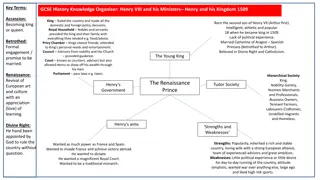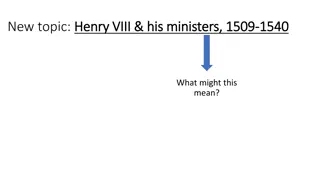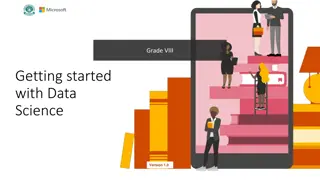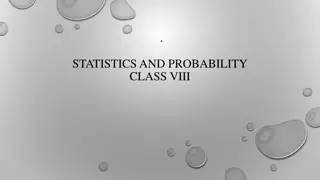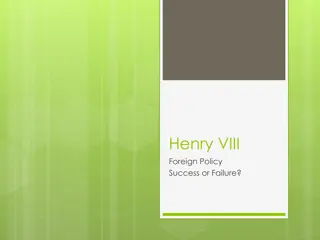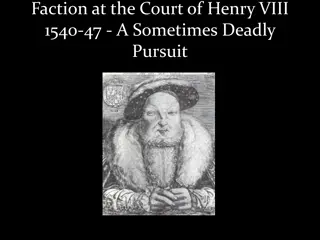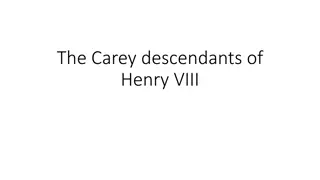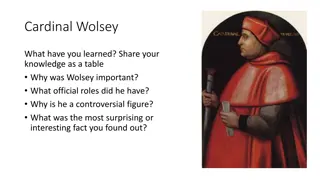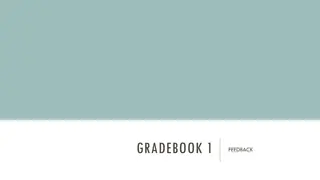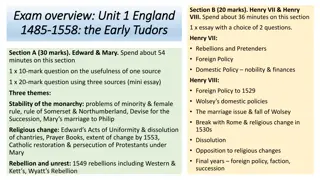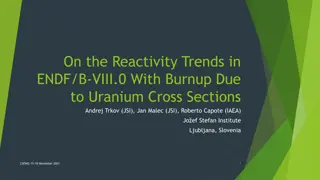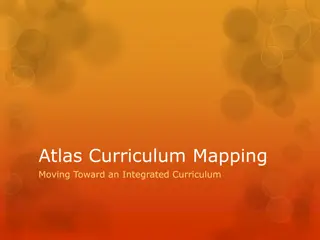Exploring Curriculum Development in Education: Insights from Dr. V. Regina
Delve into the intricacies of curriculum development in education with Dr. V. Regina, Principal and Assistant Professor of Biological Science at CSI Bishop Newbigin College of Education. Discover the different approaches taken by conformists, reformers, futurists, and radicals in shaping curriculum content. Explore the impact of language, community, and values on educational goals, textbooks, and co-curricular activities in fostering holistic learning experiences for students. Gain valuable insights into resource utilization, syllabus design, and the importance of educational objectives in enhancing student learning outcomes.
Download Presentation

Please find below an Image/Link to download the presentation.
The content on the website is provided AS IS for your information and personal use only. It may not be sold, licensed, or shared on other websites without obtaining consent from the author. Download presentation by click this link. If you encounter any issues during the download, it is possible that the publisher has removed the file from their server.
E N D
Presentation Transcript
KNOWLEDGE AND CURRICULUM Unit VIII- Resource and Curriculum Dr.V.Regina Principal ,Asst,Professor of Biological Science CSI Bishop Newbigin College of Education No.109, Dr.Radhakrishnan salai, Mylapore, Chennai - 600004
Introduction Knowledge Syllabus Curriculum and community The Conformists The reformers The futurists The radicals Synopsis Language and value Language and curriculum Curriculum and their goals Time-table Syllabus Text-books Co-curricular activities Children s literature Teacher Handbook Conclusion Dr. V. Regina , Principal CSI BISHOP NEWBIGIN COLLEGE OF EDUCATION
To impart knowledge on studies communities, values, languages. Learning Objectives To emphasizes the school timetable syllabus, textbooks and co- curricular activities. To improve their reading habits. Articulated measurable outcomes and assessment criteria and developed. Learning Outcomes Compares co-curricular activities and curricular activities. Assess textbooks. Constructs their educational goals. Dr. V. Regina , Principal CSI BISHOP NEWBIGIN COLLEGE OF EDUCATION
Resource of Curriculum Knowledge TextBook Conformist Syllabus Pedagogy of TB Reformer Co Curricular activities Timetable Community Present TB Futurist General characteristics Meaning Future TB Radical Value Concept Construction A good textbook Importance Flexibility Language Instructors manual Teacher s manual Children's Literature Types of activities Educational goal Social Physical Educational Dr. V. Regina , Principal CSI BISHOP NEWBIGIN COLLEGE OF EDUCATION
School time table Syllabus Textbooks Curricular activities Educational beliefs Teachers values Student/ Teachers Interaction Institutional version Graduate profiles Feedback Tests Projects CURRICULUM Content Textbooks Self-study modules course outlines Assessment criteria Online learning resources Practice activities Home work Facilitator manual Powerpoint slide and video clips Background readings Evaluation surveys Couple workbook Dr. V. Regina , Principal CSI BISHOP NEWBIGIN COLLEGE OF EDUCATION
Knowledge is divided into informal and formal. Informal can occur outside of a structural curriculum. Lessons that are not explicitly taught. It is natural and incidental. Setting such as parents, peers , media and community. Formal curriculum embodies the learning activities that re Introduction planned, organised and implemented within regular school hours. Example: university, school. Linked with schools and training institution Non formal with community groups and other organization. It is a special collection of teaching resource for education students to borrow. It contains books and other materials on all subjects to help with lesson planning and use with children in the classroom. Dr. V. Regina , Principal CSI BISHOP NEWBIGIN COLLEGE OF EDUCATION
Knowledge Knowledge resources are the explicit knowledge for sharing purposes. Examples are learning objects articles, books, books, software programs, informal messages etc. curriculum also exists as a body of formal discipline knowledge in the field of education. Syllabus Curriculum based on the through knowledge of the students and their communities, their values, their language and their educational goals. Timetable , syllabus, textbooks and co-curricular activities. Samples of textbooks, children's literature and teachers hand book. Curriculum and Communities Reformers Conformists Futurists Radicals Dr. V. Regina , Principal CSI BISHOP NEWBIGIN COLLEGE OF EDUCATION
The conformists The reformers Curriculum workers with a conformists intent being curriculum Curriculum workers should begin the task of curriculum development by identifying the needs of the existing society and development by identifying social problems such as racism,sexism, its institutions. environmental pollution etc. Curriculum objects are derived from those needs. Problems in raising the consciousness The teacher is expected to serve as a advocate. The teacher is to play an active role as facilitator The radicals The futurists The school curricular should have a futurist orientation. The radical educator create their own text. Rapidly advancing and clear-cut new technologies will force They learn to read. school to change rapidly. They are helped to understand. Gradual improvement of the educational process. Dr. V. Regina , Principal CSI BISHOP NEWBIGIN COLLEGE OF EDUCATION
Language and value Language and curriculum Crrl Jung, Macdonald (1974) - A transcendental Classroom are places of language as symbolic, interactions , developmental ideology of education to speak of this journey alphabetic patterns enriched by movement. toward transcendence as the primary concern of all human. Language gives expression to love, grief, caring and other Michael apple (1975) - value and actions which are lived emotion. It is not just formalized language but the social and cultural dimensions that make language so important in human being. Dr. V. Regina , Principal CSI BISHOP NEWBIGIN COLLEGE OF EDUCATION
Curriculum and their Goals Educational goals are long term outcomes but Effective oral and written communication skills. curriculum goals are short-term. Basic reading, mathematics and writing abilities Survey conducted with stakeholders as to what types of Effective interpersonal skills skills the believed students should be developing Technology skills Critical- thinking skills, problem - solving strategies Health and hygiene and effective decision making skills Effectively managing money Creative- thinking processes Ability to continue learning. Dr. V. Regina , Principal CSI BISHOP NEWBIGIN COLLEGE OF EDUCATION
Time table Day 1 2 3 4 5 6 7 8 a) Time of the beginning and ending of the school day b) Subjects and activities being undertaken in each period mon B b by each teacher. tue r r c) Days on which every subjects taught wed e e d) Name of the teachers teaching e) room/ place - where the activity is going on thur a a f) Recess break or interval time. fri k k Dr. V. Regina , Principal CSI BISHOP NEWBIGIN COLLEGE OF EDUCATION
a) Bring systems Significance of timetable b) Eliminate waste of time and energy c) Ensures due attention to every subjects d) Develops moral values Day 1 2 3 4 5 6 7 8 e) Ensures regular and even progress mon B b f) Provides a psychological environment tue r r g) Ensures equitable distribution of time to different subjects. wed e e h) Develop good habits thur a a i) Facilitates advance planning fri k k j) Ensures efficiency Dr. V. Regina , Principal CSI BISHOP NEWBIGIN COLLEGE OF EDUCATION
Form of a school Time- Table Construction of time table a) Master - time table Department regulation b) Class time table Types of school c) Amount of five available Teacher s time table d) Vacant period time table Relative importance of a subject e) Games time table Incidence of fatigue f) Co curricular activities time-table Principle of justice g) Home work time table Principle of variety Principle of play and recreation Flexibility in time table Principle of free period for teachers a) Needs Principle of optimum utilization b) Interests Principle of local variation c) Practical activities Principle of initialization d) Unassigned periods Principle of elasticity e) Special programmes Dr. V. Regina , Principal CSI BISHOP NEWBIGIN COLLEGE OF EDUCATION
Pedagogy of text book Syllabus a) They served to gather a body of knowledge a a) Syllabus is a defensible map of core skills knowledge, mechanism for introduction to learning and asa competences, capacities to be covered with affiliated reference material. statements of standard. b) It provides teaches with a rationale and outline of the The present textbook school subjects. Text books a) Static printed volume a) It is a printed and bound artifact and a course of study. The future of textbook a) Animation and simulations to interactive exercises. Dr. V. Regina , Principal CSI BISHOP NEWBIGIN COLLEGE OF EDUCATION
Different types of activities Benefits of Co- Curricular Activities 1. Physical Activities 1. Theoretical knowledge is strengthened - NCC 2. Stimulate playing, acting, singing, recitation, speaking. - SCOUT 3. Participating in debates, music etc - GUIDE 4. It enable freely through different activities. 1. Social Activities 5. It develop healthy competition. NSS - 6. Guides to develop skills Red cross society - 7. Provide self identity YRC - 8. Develops decision-making skill. Ethical 1. Educational activities 9. Inculcate values like psychological Cultural activities - 10. Motivates in learning social etc. Hobbies - Literally academic activities - Debates and discussion - Dr. V. Regina , Principal CSI BISHOP NEWBIGIN COLLEGE OF EDUCATION
1. Proper selection 2. Wide range 3. Definite objective 4. Growth of programme 5. Adjustment in time table 6. Providing facilities Principles of Organizing 7. Pupils participation 8. Opportunity for all 9. Specifies time, date and place 10. Providing guidance 11. Balancing teacher workload. Dr. V. Regina , Principal CSI BISHOP NEWBIGIN COLLEGE OF EDUCATION
Criterions of Textbook Textbook - Critical Analysis 1. Goals of the course - suitable with the syllabus A textbook can be referred to as a published 2. Background of the students - age/ educational/ culture material specially designed to help language background learners to improve their linguistic and 3. Approach - audio/ visual/ kinesthetic communicative abilities. 4. Language skill 5. General content 6. Quality of practice materials Textbook - Book identity 7. Sequencing 8. Vocabulary - Book title 9. Accompanying materials (picture/ Tape) - Publisher Evaluation of the Textbook - Date / year of publication - Intended for grade 1. Strength - Chapter / unit 2. Weakness - Page Dr. V. Regina , Principal CSI BISHOP NEWBIGIN COLLEGE OF EDUCATION
Textbook - Critical Analysis Children story book linguistics/ visuals Language features :- First language of children Fictional element :- Plot/ characters/ setting/ theme It includes stories / books/ magazines/ poems / made and style for children Visual elements :- line / color/ shape texture/ Classified into composition - Genre- technology/tone content/length Non - fictional elements:- Presentation / complex and - The intended age of the reader / picture specific / accurate and current fact/ captions / labels/ Popular classics such as - The secret garden , pippi intended audience. longstocking peter pan. Dr. V. Regina , Principal CSI BISHOP NEWBIGIN COLLEGE OF EDUCATION
Teachers hand book - code of ethics Style of teaching 1. Calm 1. Care 6. Pupils needs 2. Relaxed 2. Well being 7. Recognises 3. Facial expression 3. Ability individual 4. Resist temptation 4. Fostering 8. Develops talent 5. Control anger 5. Act with justice 9. Welfare of pupils 6. Positively dealing pupils/parents/ community 10. Health and safety 7. Assertive manner Textbook - Book identity Teacher s Responsibilities to his/her colleagues 1. Through proper channel consultation to be done. 1. Professional courtesy 4. Improve 2. Encourage parents 2. Helping juniors effectiveness 3. Teachers shall act within the community 3. Express opinion 5. Manifest responsibility 6. Accepting responsibility Dr. V. Regina , Principal CSI BISHOP NEWBIGIN COLLEGE OF EDUCATION
Leaders in all schools need to help teachers improve their Conclusion knowledge of the processes involved in all four phases of the teaching as inquiry cycle. Leaders should also convey the benefits to students from adapting the planned school curriculum in response to information about students learning. Dr. V. Regina , Principal CSI BISHOP NEWBIGIN COLLEGE OF EDUCATION
Suggestive Readings Educational Leadership, 57(30), 66-69 Aggarwal J.C. (2010) Organisation and practice of modern India education Apple . M.V. (1975) Scientific interests and the nature of educational Institution beethovens_silence.mp3 Dr. V. Regina , Principal CSI BISHOP NEWBIGIN COLLEGE OF EDUCATION
